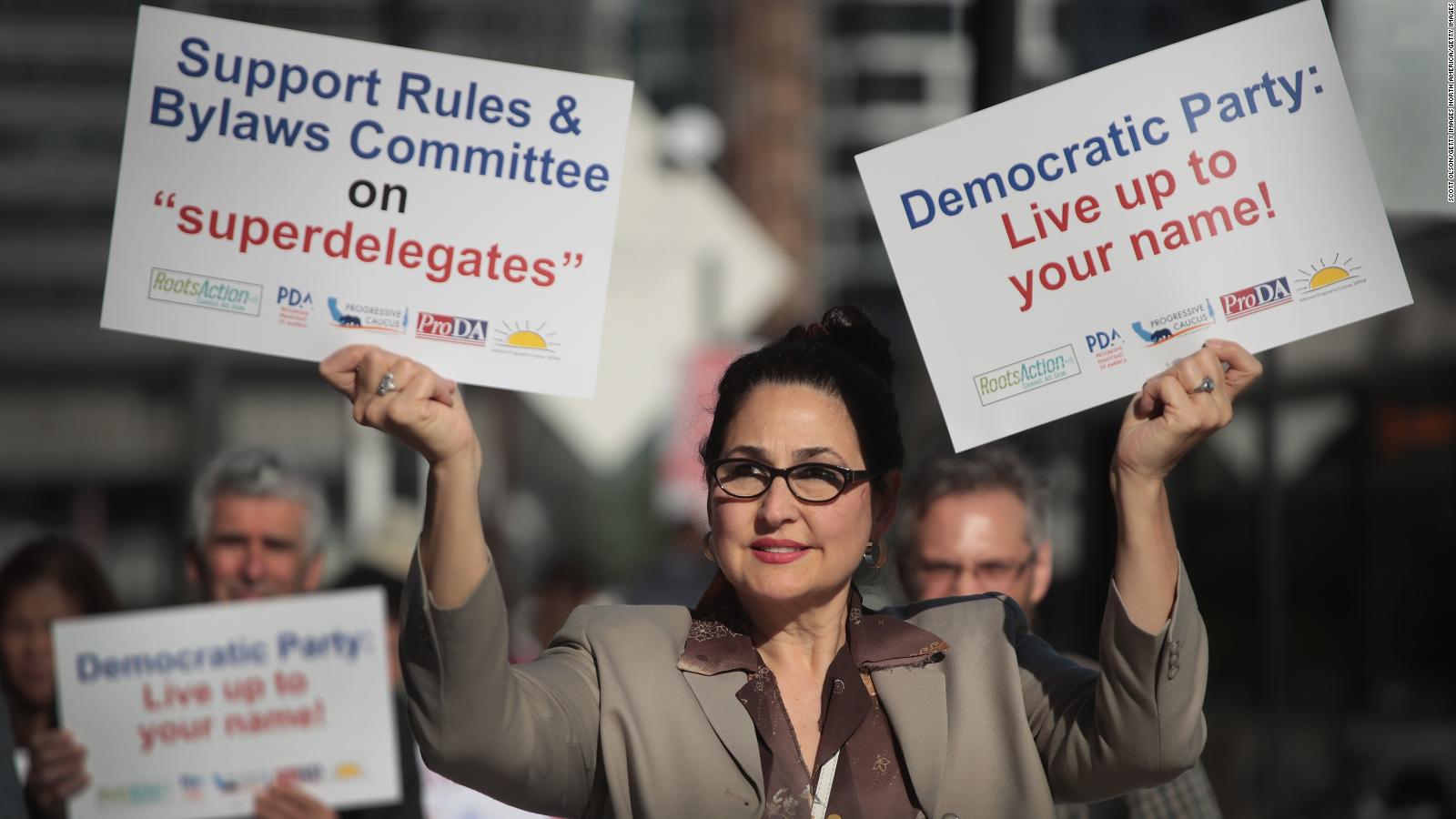It happened over the weekend, in Chicago, as Democratic National Committee members voted to limit the power of so-called “Superdelegates” within the party’s nomination system. They’re technically known as “unpledged delegates,” and consist of Democratic Party officials from around the country including former presidents, congressional leaders, big-money donors, big-city mayors, labor leaders and longtime local party activists. For a complete list of Democratic Party Superdelegates, see this article compiled by Vox in 2016.
NBC News reports on the rule change for the 2020 primary process:
The reform package, pushed by DNC Chairman Tom Perez and allies of Vermont Sen. Bernie Sanders, among others, passed overwhelmingly by voice vote at the DNC’s summer meeting here — two years after the process started.
The change will prohibit superdelegates from voting for president at the party’s 2020 convention, unless the outcome is already assured or it deadlocks, which hasn’t happened in decades. The vast majority of superdelegates sided with Hillary Clinton over Sanders in their primary fight two years ago.
The new rules will also make caucuses more accessible by requiring state parties to accept absentee votes, addressing concerns that the caucuses are less democratic than primaries because they require people to physically attend the events in order to participate in the presidential nominating process in their state.
A number of state parties are already considering replacing their caucuses with primaries, with some state party chairs here predicting the 2020 nominating contest will feature many fewer caucuses than in 2016.
Time provides some greater detail on how the rule change would work in a practical sense:
The 700 or so superdelegates — party leaders including Democratic National Committee members, members of Congress, and former Democratic presidents — will no longer be able to vote in the first round of balloting at the party’s 2020 convention unless there’s already a clear winner based on the results of the party’s primaries and caucus.
If the nominating process moves past a first round, something that hasn’t happened since 1952, superdelegates would be able to vote.
The vote was very strong in favor of the rule changes, with everyone hoping to avoid another bitter fight like Hillary/Bernie in 2016, but it wasn’t completely unanimous. There was opposition to the change, mainly from some members of the Congressional Black Caucus, which features several Superdelegates, as also reported by Time:
Before Saturday’s vote, Don Fowler, a former chair of the DNC and the South Carolina Democratic Party, warned members that the changed policy would “disenfranchise” hundreds of people of color who are among the superdelegates.
Representative Cedric Richmond of Louisiana, chairman of the Congressional Black Caucus, warned in a letter to Perez last week that the plan amounted to “a solution in search of a problem. Unelected delegates have never gone against the will of primary voters in picking Democratic presidential nominees.”
It’s true, and Representative Richmond is correct, the Superdelegate have never technically overturned the results of the primaries and selected a candidate who hadn’t already received the most pledged delegates. However, 2016 was too close for comfort for many Democrats and it proved how even the perception of a “rigged system” against Bernie Sanders has caused some deep wounds within the party. Part of the issue in 2016 was how Superdelegates were being included in the count with pledged delegates which created the appearance of an overwhelming delegate lead for Hillary which was actually much closer if Superdelegates weren’t included. Hence the rule change that Superdelegates will no longer count in the first round of voting at the convention, which means the pledged delegates, which are won in primaries and caucuses, are now the most important part of the process.
The rule change diminishes the power of the Superdelegates, but doesn’t eliminate them altogether. Whether it matters in 2020 will depend on how close the Democratic primary is and whether a candidate can break away from the pack early to become a unifying candidate which would neutralize the concern for Superdelegates swaying the process.
Donate Now to Support Election Central
- Help defend independent journalism
- Directly support this website and our efforts
